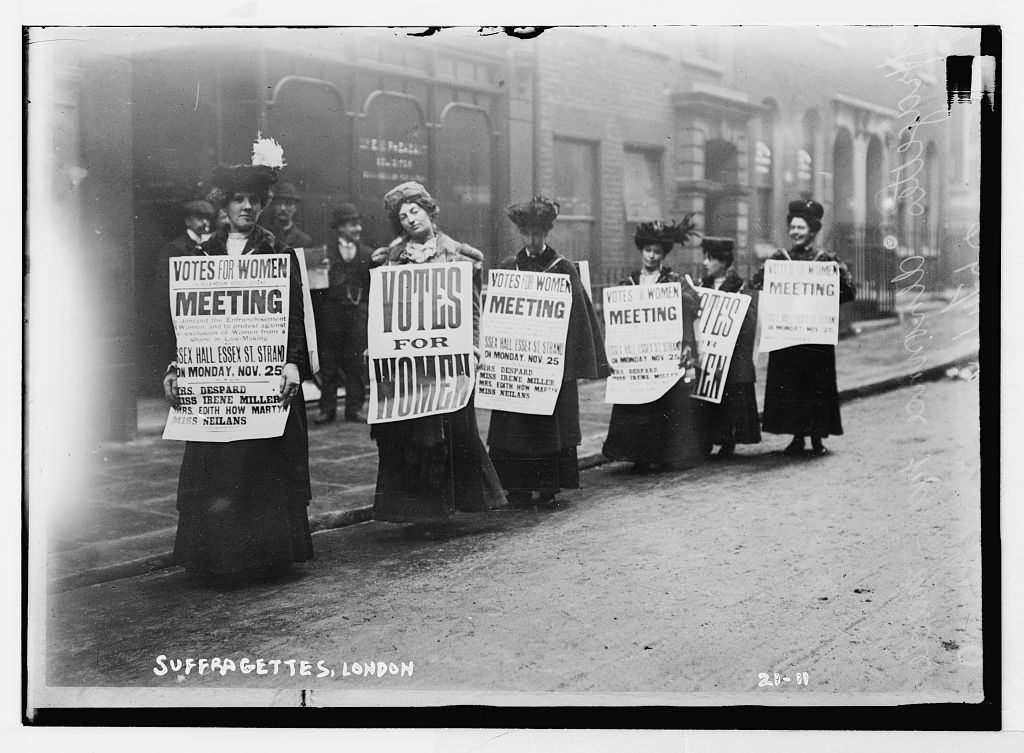
Comment Writer Cerys Holliday questions whether women should feel pressured to vote in the upcoming election based on the history of women’s suffrage in Britain
Throughout history, women of Britain have fought for their right to vote. Although the suffrage movement proved controversial, in our present day, we can look back and question whether women have a certain responsibility to ensure that this vital piece of history isn’t left in the past.
The women’s suffrage movement stemmed from the 19th century through to the 20th; efforts from both suffragists (non-violent protesters) and suffragettes (violent protesters) highlight the struggles of being a female during different historical periods in Britain. In a patriarchal society filled with discrimination against women in both their working and private lives, acting out proved to give us what is now known as one of the greatest emancipations throughout British politics. Women from varied backgrounds embraced themselves in a movement which some may argue personifies the very pinnacle of modern day feminism. Women…embraced themselves in a movement which…personifies the very pinnacle of modern day feminism
In 1918, the passing of the Representation of the People Act meant legislation allowed for women over the age of 30 who owned property to vote, which accumulated to approximately 2 in every 5 women. Over a hundred years later, females make up 51% of the voting population; however, it was reported in 2017 that only 62% of women have an interest in politics. What does this tell us? That history does not hold a lasting impact on today’s female population, or is it outdated in a world where predispositions associated with particular political parties trumps the idea of having a voice all together?
In 1982, there were 19 female MPs alone, whereas in the 2017 election, over 200 women were elected with 208 seats out of 650. Having an input into politics not only provides an overall outcome as to who will lead our country, but ones that highlight the on-going quest for equality. Speaking to The Guardian, Catherine Mayer – who helped found the Women’s Equality Party, noted that progress has been made in the world of politics for women, but we also need to ‘recognise what hasn’t been achieved’, such as issues with the gender pay gap. Diane Reay, a professor at Cambridge University, believes more female working-class representation needs to be present in parliament, with ‘less than 1% of MPs [being] working-class women’ as of early 2018.
We can question whether history should pressurise women to vote given what it tells us, but we should also understand that voting is an essential factor in the making of the democratic society that we live in. If change is to be made – real, positive change, your voice needs to be heard – for not only the benefit of the world in which we currently live in, but the one we are moulding for future generations. Voting is an essential factor in the making of the democratic society that we live in
So, for this year’s up-and-coming election on December 12th, it is important to have your say. Knowledge on the history of British suffrage may aid your decision to do so, but it will not decide who it is you wish to vote for; it will not do the voting for you. That is why, although the efforts carried out by women throughout past centuries ensured what is now a basic human right for adult females in Britain, there should not necessarily be pressure for females to do so for that specific reason. It is your decision whether you wish to have a political voice – regardless of its size, but if you are indecisive, think not only about the hardships of history, but the impact your opinion will have on the Britain of today, as well as the everlasting imprint it is going to have on the following generations of women.
Comments